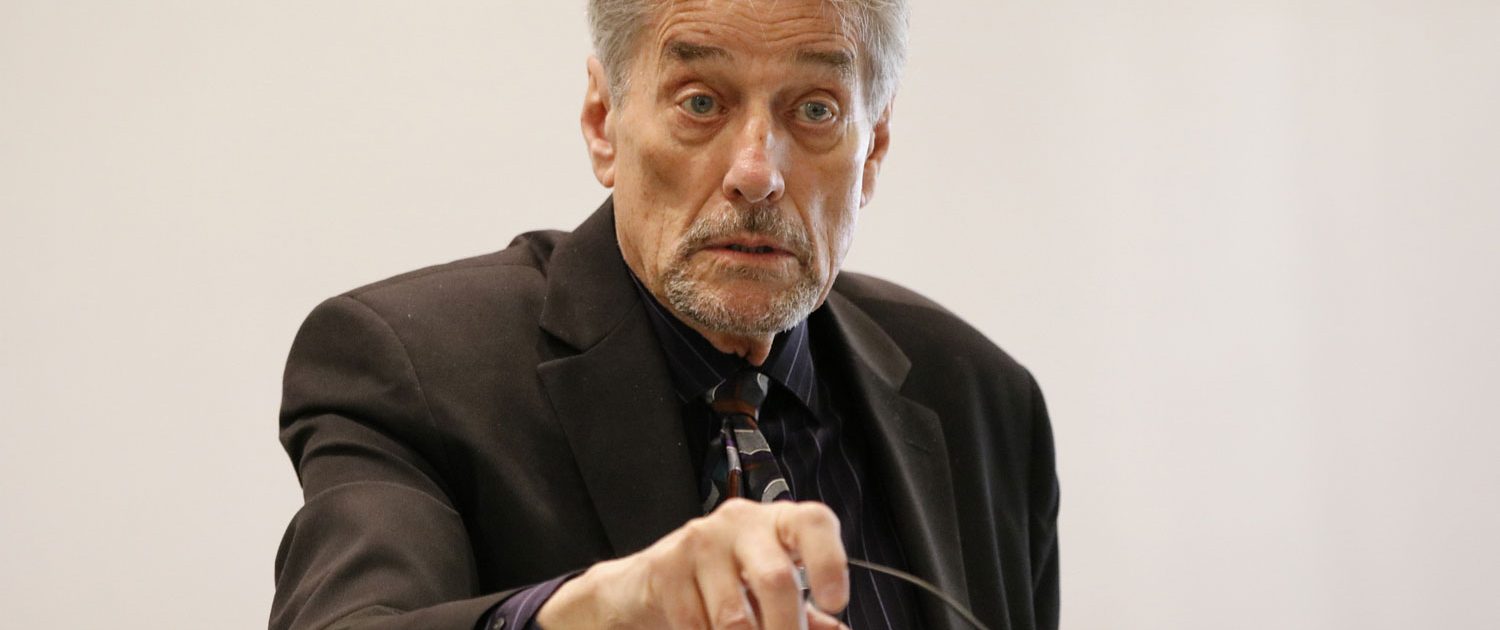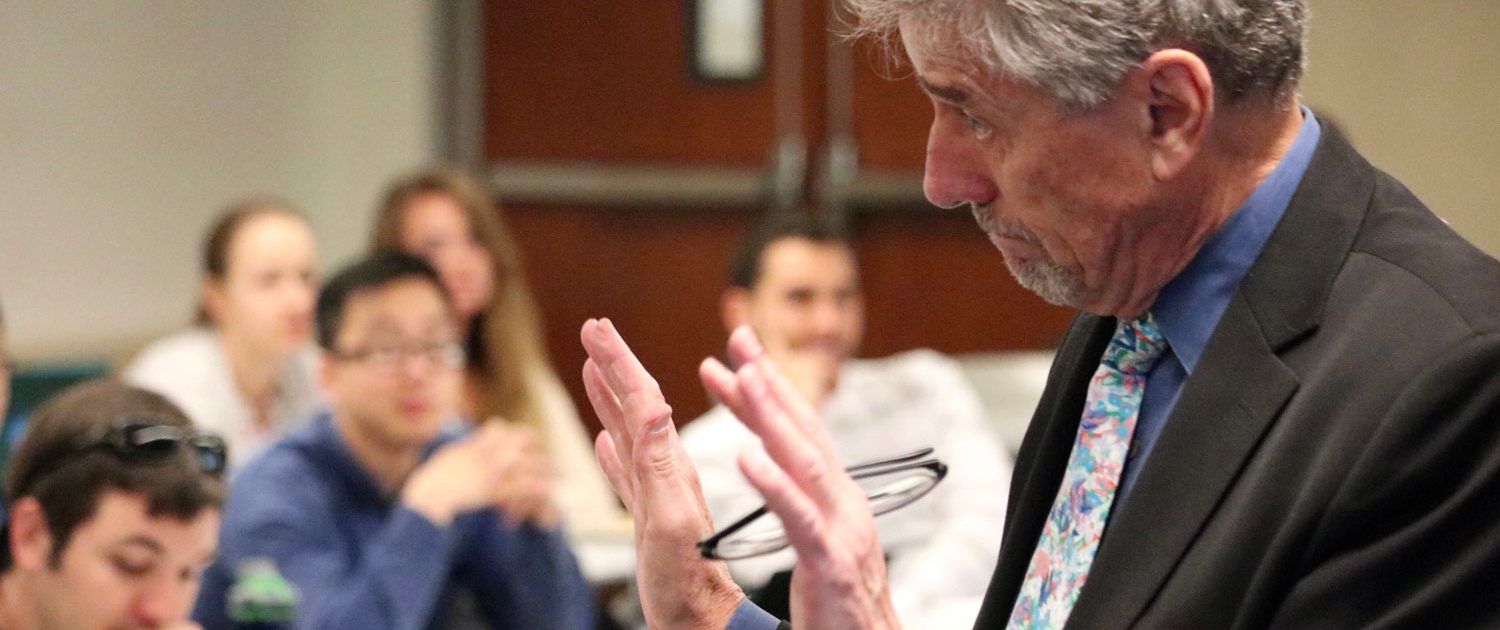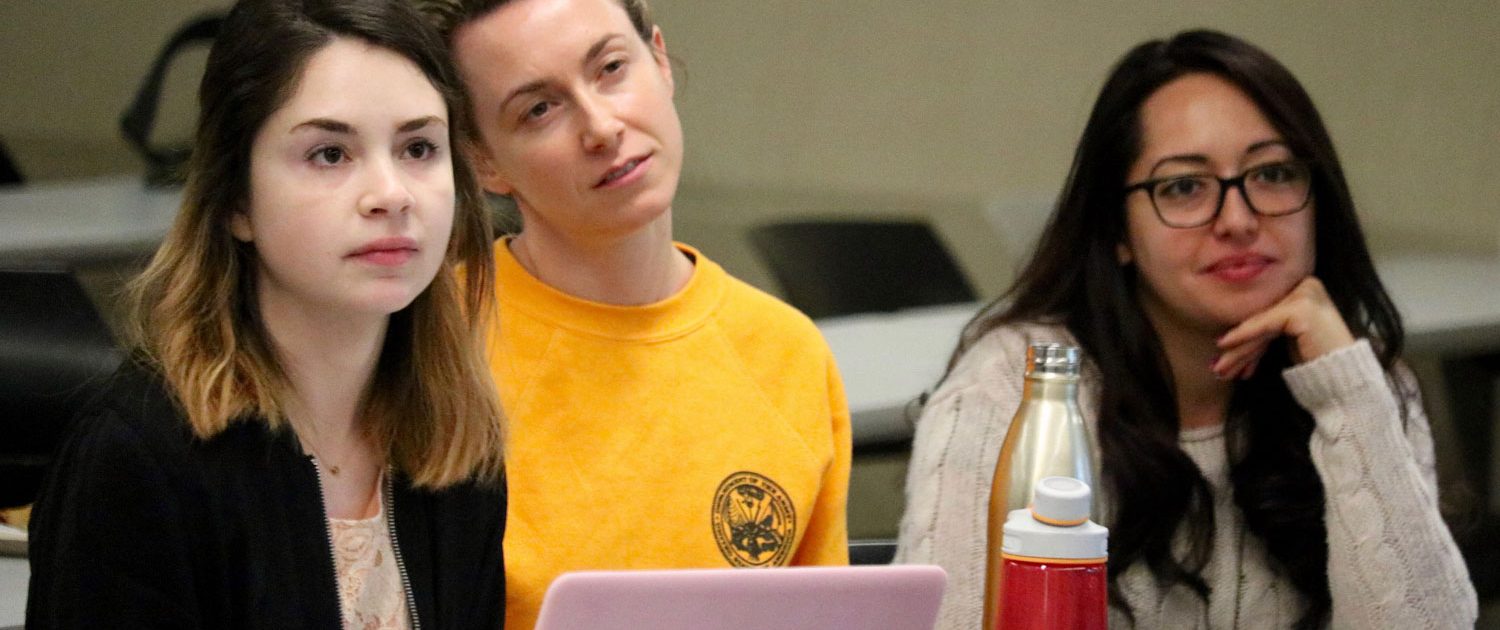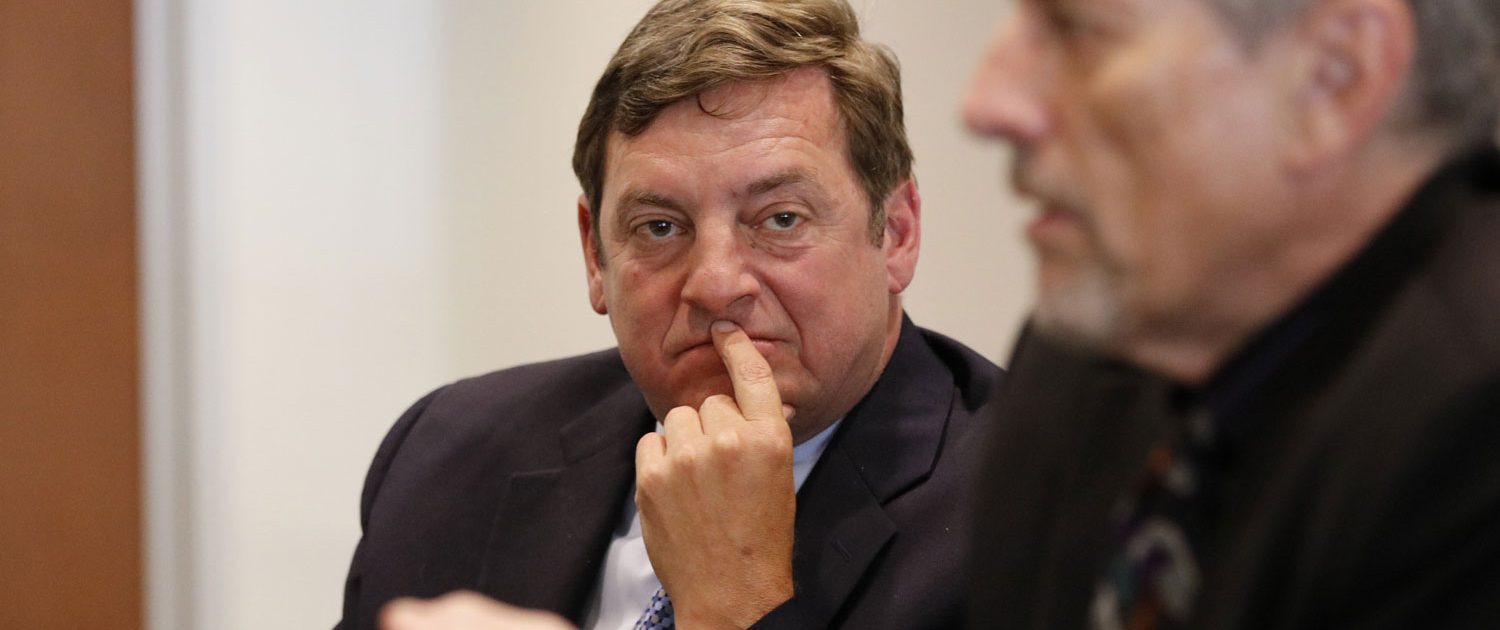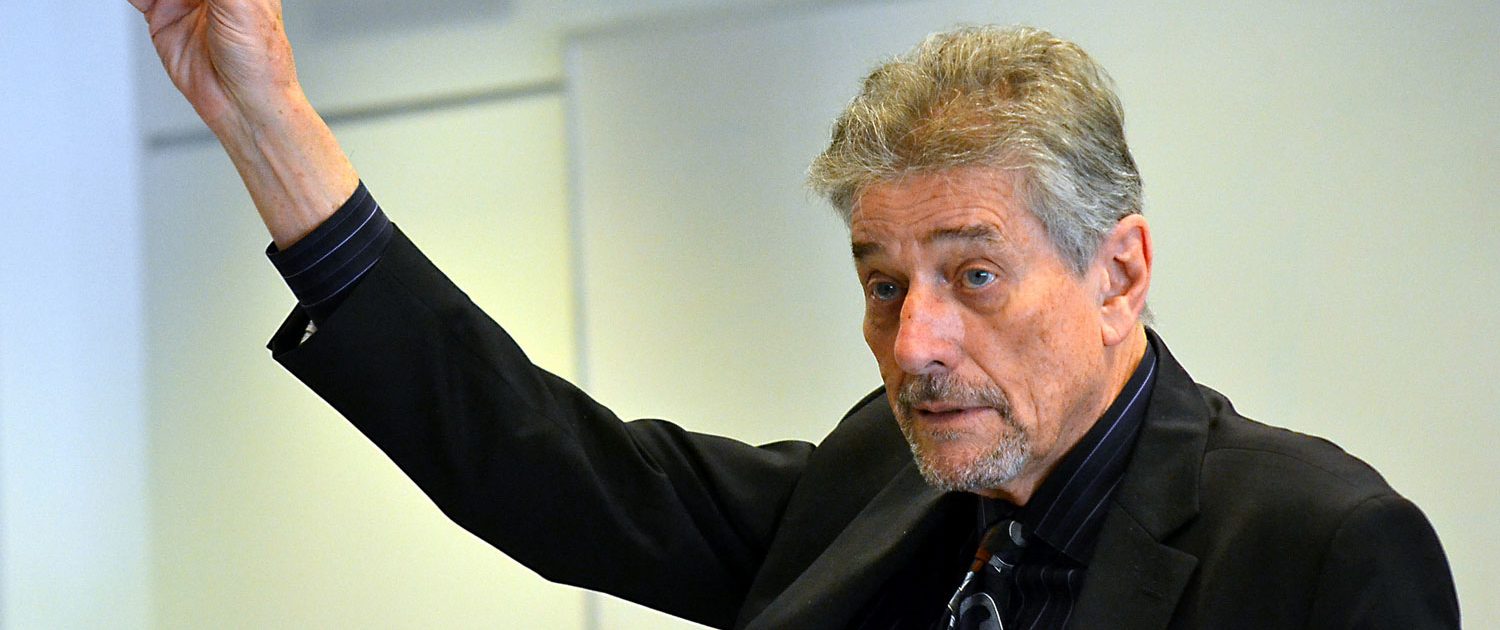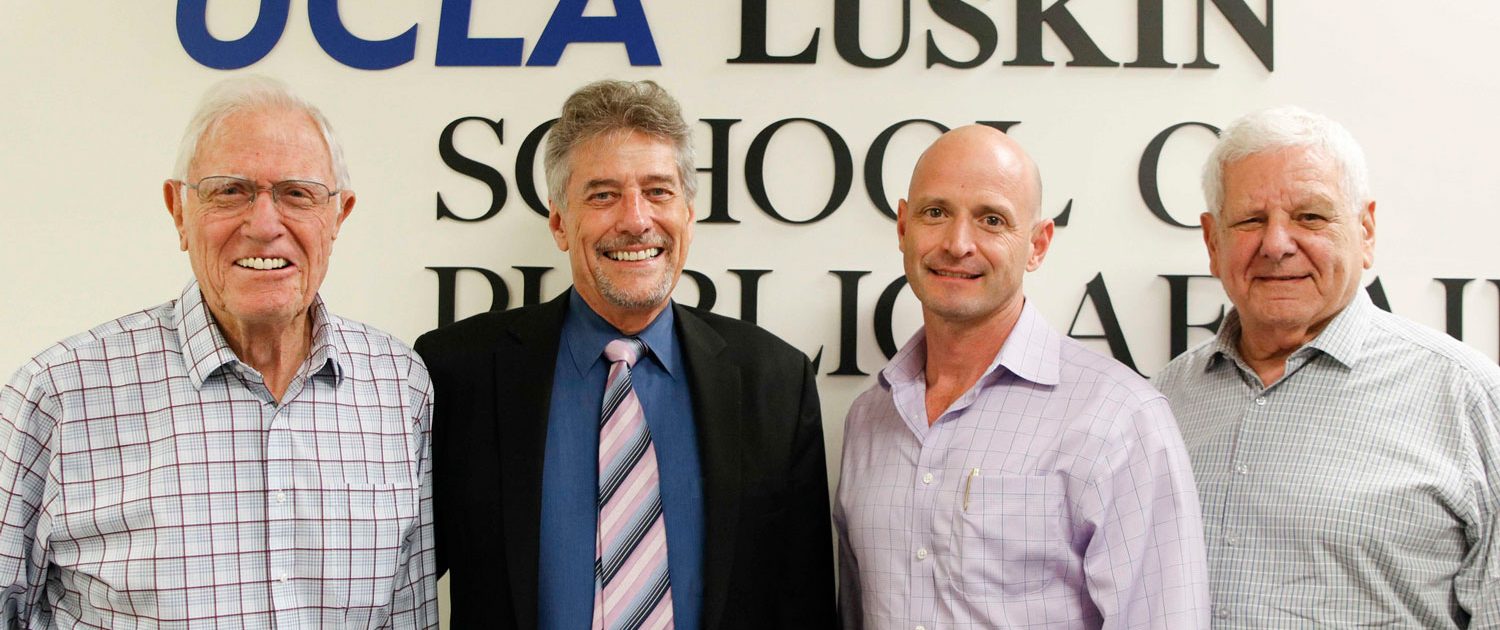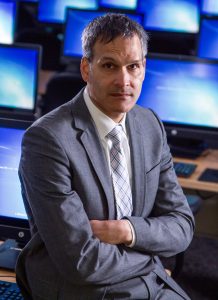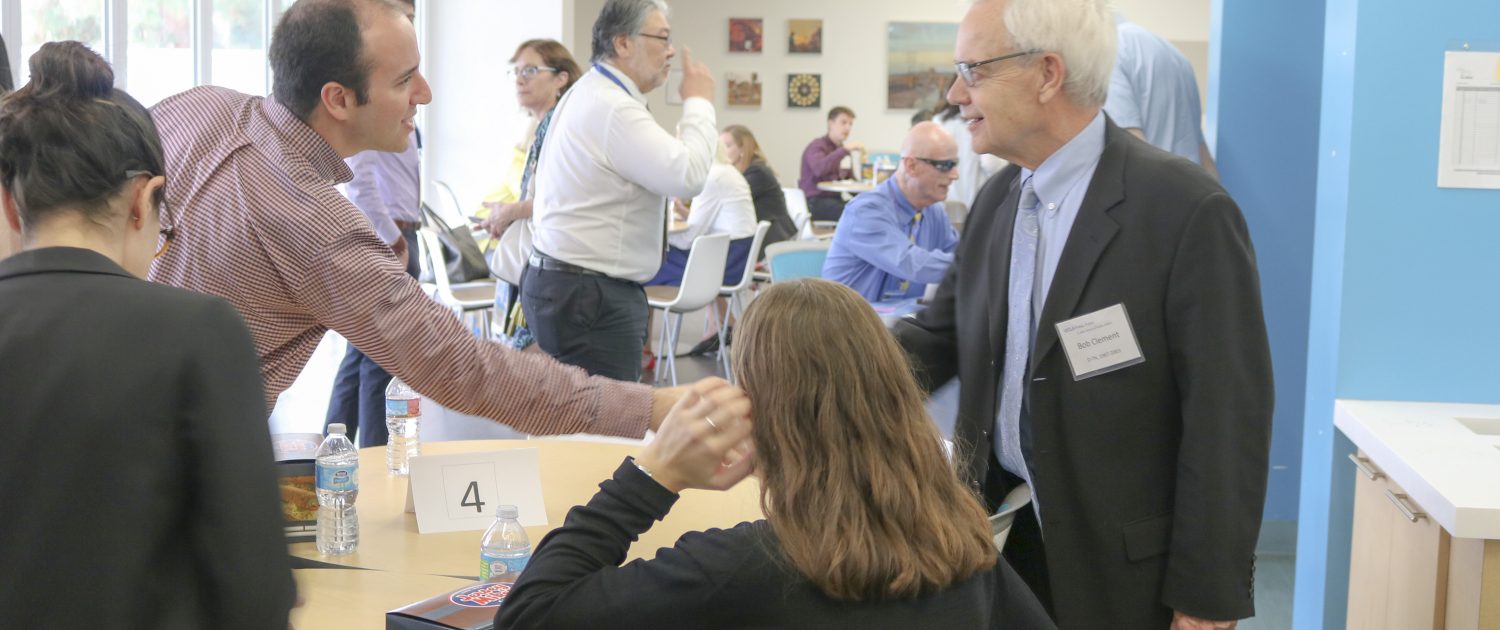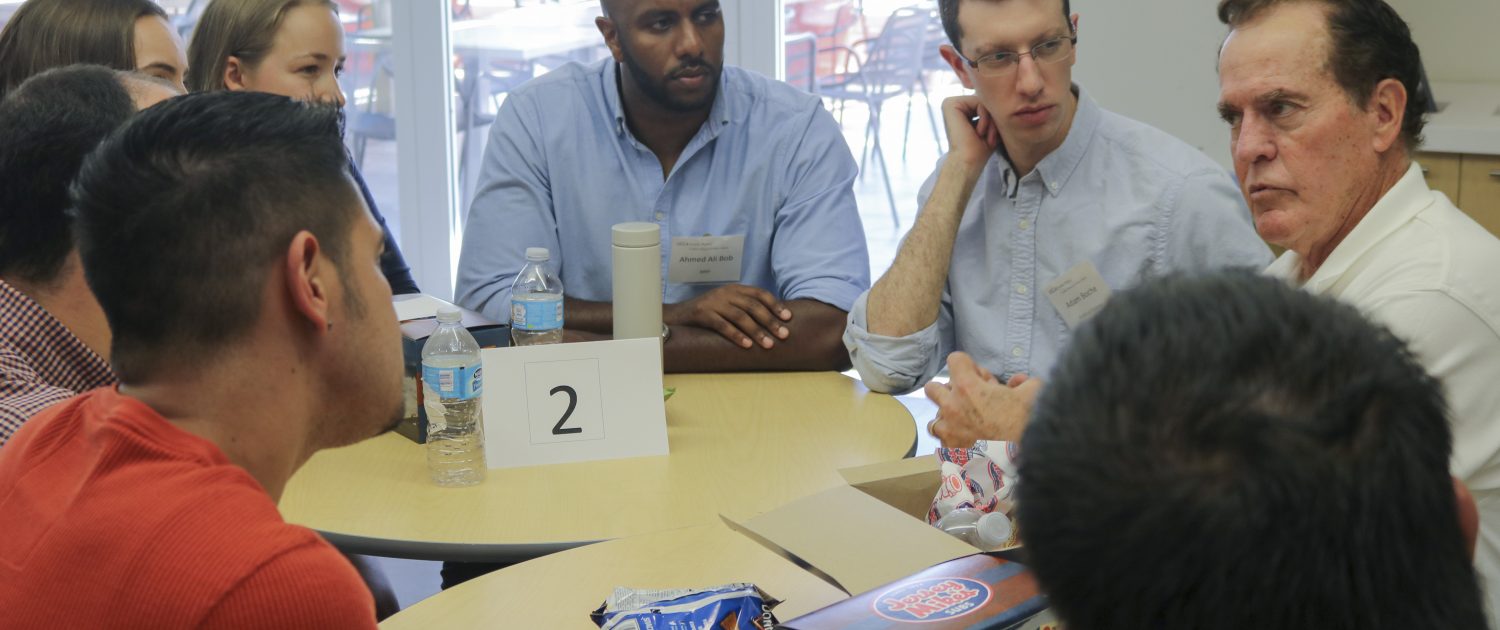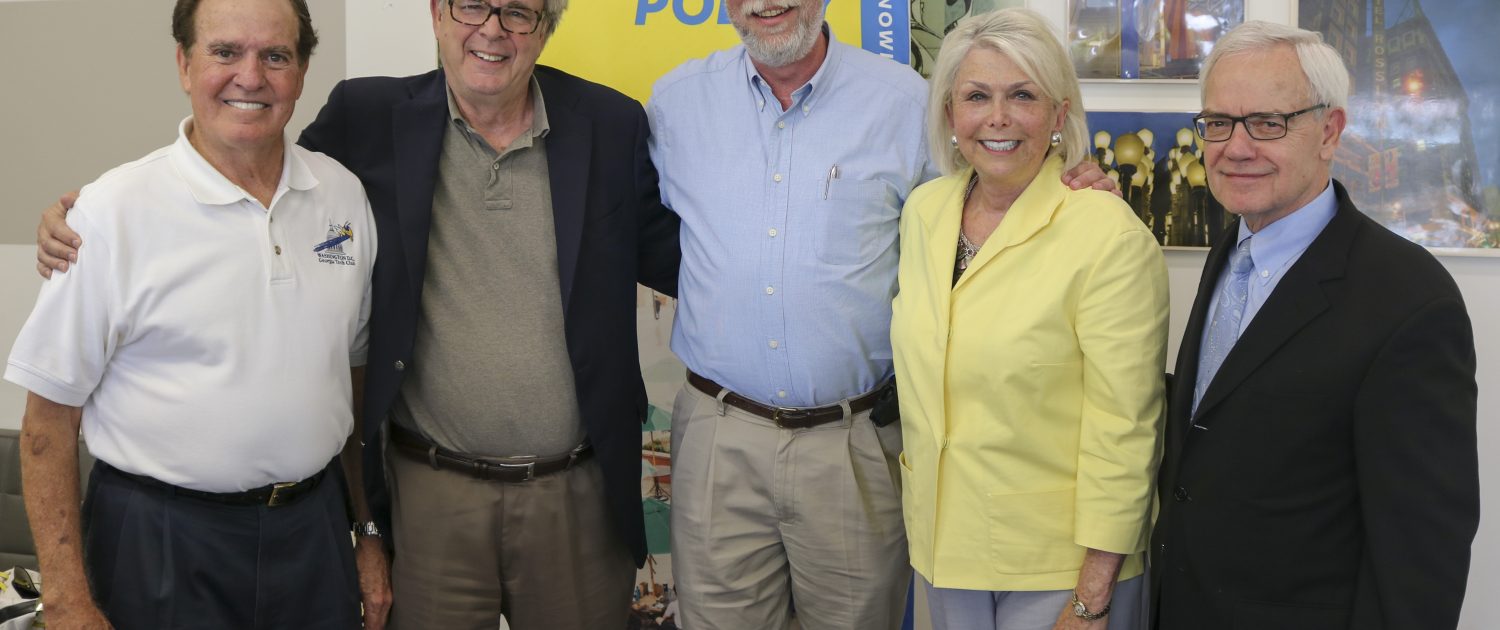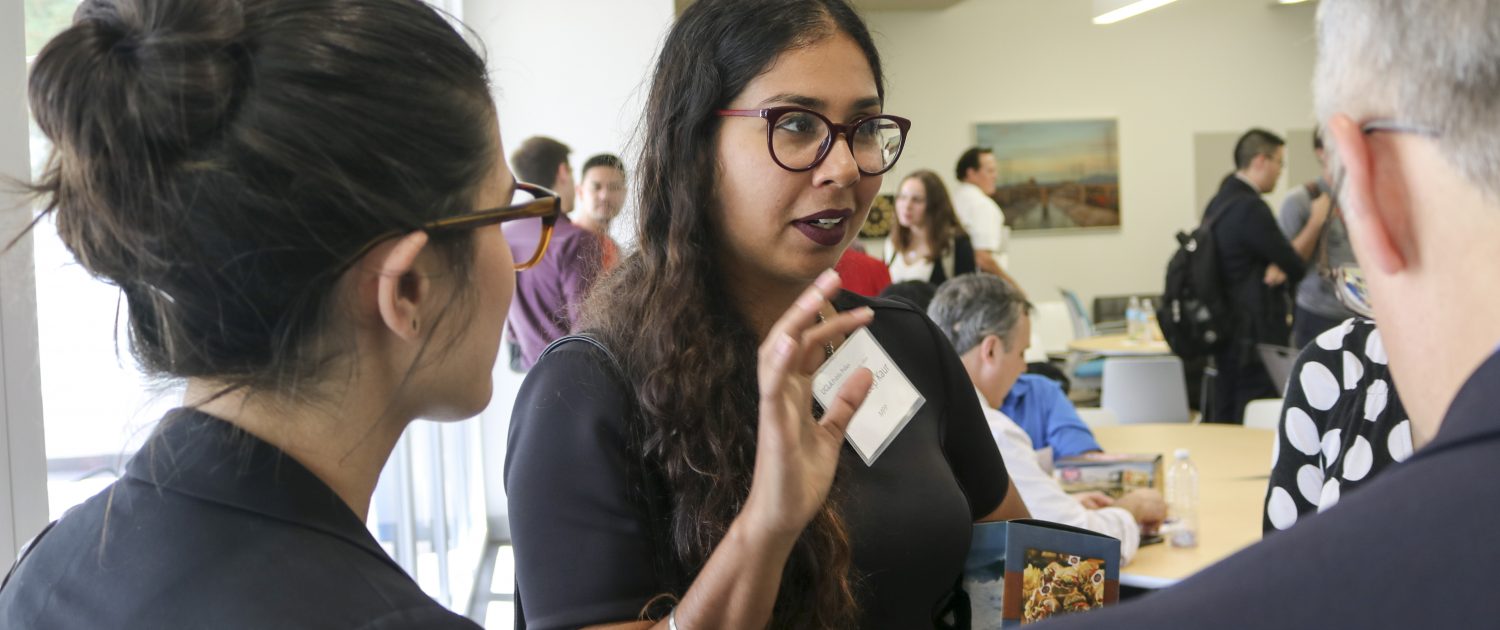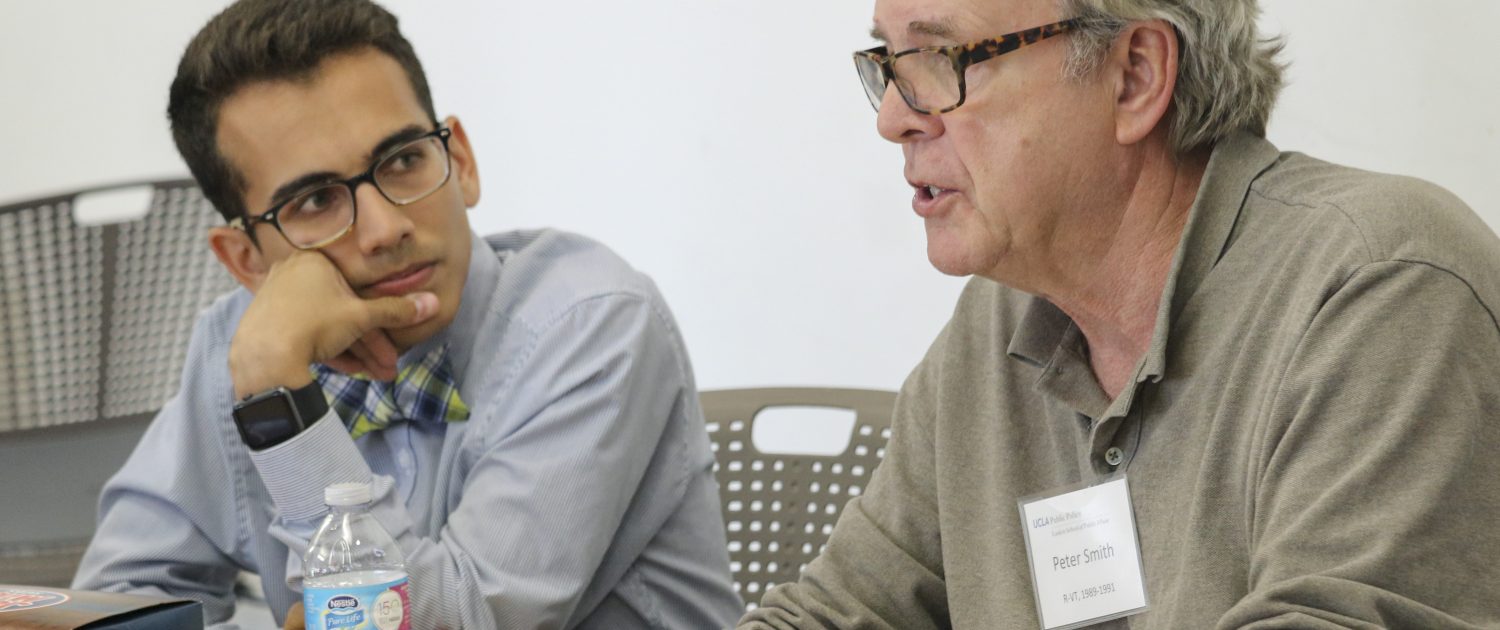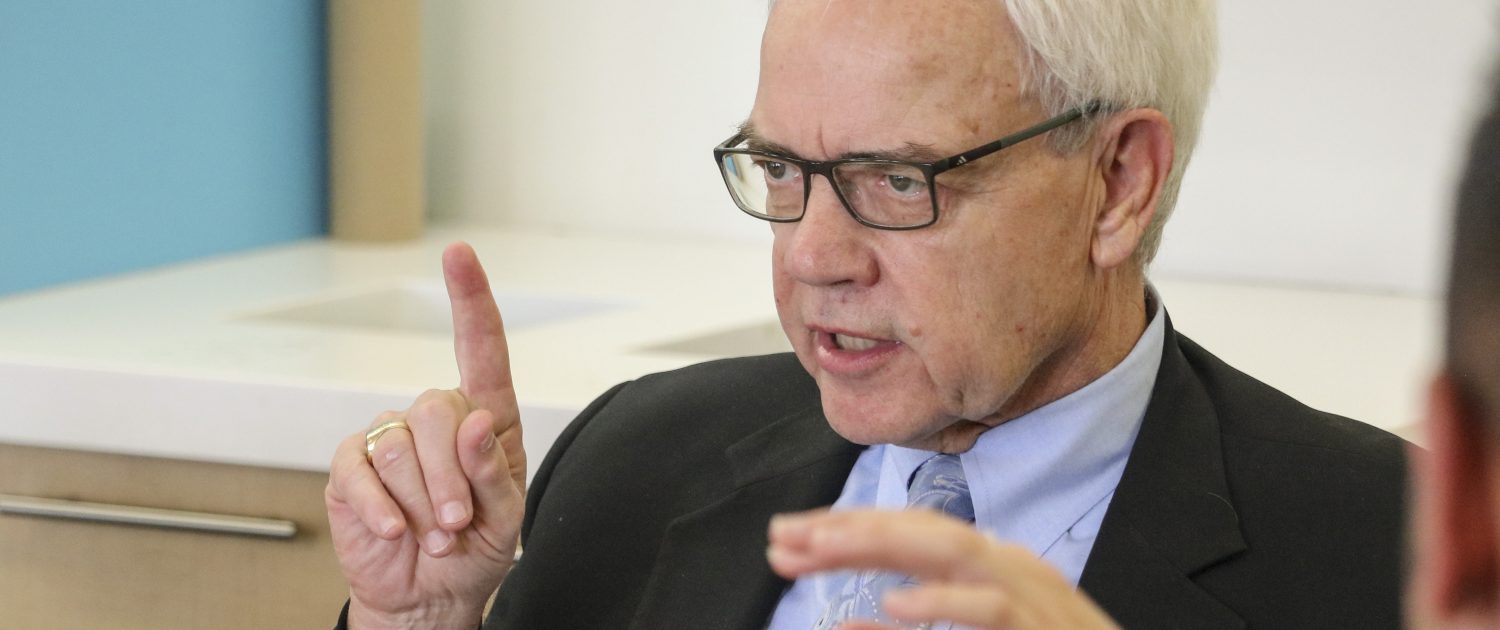By Zev Hurwitz and Stan Paul
Public policy students at UCLA frequently study the goings-on in Congress as a matter of historical fact, but the learning really comes to life when a Capitol Hill veteran makes his way to the Public Affairs Building in person.
That’s exactly what happened when M. Robert “Bob” Carr, a former longtime congressman from Michigan, spent several days at the UCLA Luskin School of Public Affairs, lecturing and meeting with Public Policy students. Carr, a former Luskin Senior Fellow, visited Luskin May 15-19, 2017, as a Regents Lecturer — part of the University of California’s Regents Professors and Lecturers Program.
During a busy week at UCLA Luskin, Carr spoke to public policy graduate students over lunch, participated in a Senior Fellows conversation, lectured to intimate groups of students and faculty, spoke to students in a first-year public policy course, and held a series of one-on-one office meetings with Luskin students.
Carr served 18 years in Congress between 1975 and 1995 in a district that includes Michigan’s capital, Lansing. He currently serves as adjunct professor of ethics and congress at George Washington University’s Graduate School of Political Management.
Public Policy Department Chair and Professor Mark Peterson introduced Carr during a May 17 lecture, noting that the former congressman was elected to the House of Representatives as a Democrat in an otherwise heavily Republican district in the aftermath of the Watergate scandal.
“As we know, Congress goes on to experience all kinds of periods of time, including the current one,” Peterson said. “Few people have more insight on that than Bob Carr.”
Wednesday’s talk was titled “Congress: A Political Institution, Not a Policy Shop” and focused on the nuances of policy pursuits in a highly politically charged governmental body.
“In most languages, ‘policy’ and ‘politics’ are the same word,” Carr said. “I’ve wondered out loud how this affects our thinking about these areas. We tend to categorize — that’s how we communicate. In English, ‘politics’ and ‘policy’ are related, but have two very different meanings.”
Carr discussed how different branches of the government interact with policy, noting that the rules of the House of Representatives tend to mandate a focus on procedure over policy-formation.
“If I have all the right arguments, I’ve got the best policy prescription, I’ve done critical thinking, and everyone agrees with me — but I don’t know the rule book — I’m not going to win,” he said. “Procedure will win every time over policy and politics.”
In the Senate, however, policy and procedure are secondary to the political environment.
“Senators are very important people. If you don’t know that, just ask them,” he joked.
Because the Senate places less emphasis on rules, every Senator has the ability to hold up legislation. “Every Senator, regardless of where they’re from or their party, is essentially equal, and they cling to that equality,” he said.
Because both chambers of Congress vary on their priorities and operations, policymaking is strained when the two chambers need to work together to pass bills, that arise from differing priorities. The executive branch, by contrast, lays out a policy agenda but is powerless to act unilaterally to introduce new laws.
A more productive form of government, he said, is one where the executive branch is not operating in a manner inherently at odds with the legislature.
“It’s relatively efficient,” he said of parliamentary democracies such as in the United Kingdom. “Parliamentary systems are designed to make things happen.”
Carr’s talk to UCLA Luskin Senior Fellows, “Can This Divided Congress Govern?” was moderated by Bill Parent, lecturer in the Department of Public Policy.
Carr provided a bit of U.S. history, discussing the political environment of the late 1700s. Carr said that at that time the framers of the Constitution did not want another Parliament, which he said was making life in the colonies “miserable,” citing the passage of the Stamp Act as one example.
In addition to making laws, budgets and playing a key role in the balance of power, “what’s the job of Congress?” Carr asked the audience. “Congress is about politics. Congress is about the struggle, not the policy,” he said.
“Can you have democracy in America if you don’t have democracy in the House?” he asked. “No, you can’t. And we don’t have democracy in the House today.”
Asked what a run for Congress in a state like Michigan would look like in today’s environment, Carr said it would not consist of a single message. Considering the makeup of the state, “It just wouldn’t work. You have to make a connection, find out what their story is. The message has to speak to the people’s story.”
When asked what things he would like to see change, Carr listed:
- Gerrymandering, especially in an age of computers and big data. “Members of Congress are selecting their constituency and not the other way around,” he said.
- Campaign finance, which he said is a corrupted system, citing super PACS and the “terrorism of money.”
- And getting rid of the filibuster and a “return to a majoritarian body,” Carr said. “I know people on my side of the aisle go nuts about that, but long-term we have to transact with the American people.”
